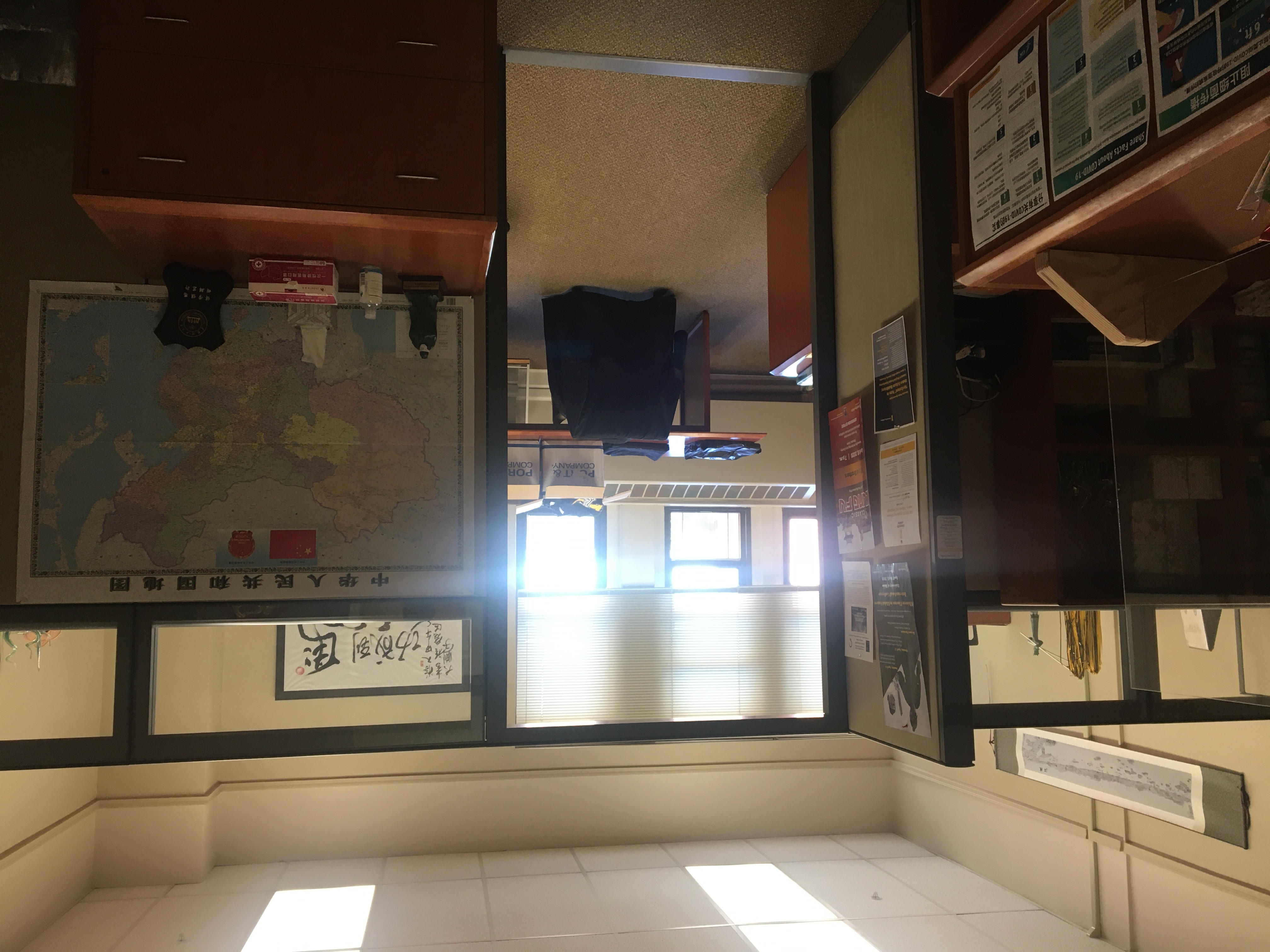Since 2013, on the third floor of the Administration building, the Confucius Institute has been a place where students wanting to know more about Chinese culture and language could go. However, at the end of this semester, it will no longer be around.
For those not familiar with the Confucius Institute, it’s an educational partnership between colleges and universities in China and other countries. It’s arranged and funded by Hanban, which is now known as the Ministry of Education Centre for Language Education and Cooperation, located in Beijing, China.
According to Jeffrey McClain-Kyong, the co-director of the University of Idaho Confucius Institute, the goal is to provide schools, ranging from public schools to universities, with Chinese language programs at a relatively low cost to the schools. It’s low cost because Hanban provides the language teachers and pays their salaries, so the school doesn’t have to front the funds. This allows schools to provide a foreign language curriculum to students at low cost for schools.
“There aren’t that many schools in Idaho that offer Chinese language options,” McClain-Kyong said. “And if you think that China is going to be a big player in the future, then it doesn’t hurt for Idahoans to have some access to learning that language.”

In the agreement, there must be an American director involved with the supervision of the Institute. McClain-Kyong said that his position involves making sure that things run smoothly for the Confucius Institute. On top of language classes, he also arranges for guest speakers to come and talk about China or East Asian-related matters. A good example is the China on the Palouse Speaker Series, hosting a cooking night featuring Chinese dishes or showing off classic Chinese Kung-Fu movies that are in Mandarin or Cantonese. It’s a grand way to show off the other aspects of Chinese culture.
While it is cost-effective for schools, the organization has drawn some controversy and skepticism from critics. Hanban does have ties to the Chinese Ministry of Education, and because the teachers are paid by Hanban, not the schools they teach at. It has led to some critics claiming that the Institute is a form of soft power propaganda by the Chinese Government, which came about when Li Changchun, the former 5th highest-ranking member of the Politburo Standing committee was quoted saying, the Confucius Institutes were, “An important part of China’s overseas propaganda set-up.”
It has also been accused of both military and industrial espionage and surveilling Chinese students abroad as well.
On Aug. 13, 2020, the U.S. Department of State designated the Confucius Institute as a foreign Mission of the People’s Republic of China. On March 8, 2021, the CONFUCIUS Act was passed by Congress which limited federal funds for schools that hosted Confucius Institutes. All that pressure is what eventually caused UI to decide to no longer host the Confucius Institute.
McClain-Kyong is disappointed to see it go but remains optimistic about East-Asian Foreign language programs at the university. He says that this fall they will hopefully be having Chinese and Japanese language classes available for students.
“It’s not going to go away,” McClain-Kyong said. “In fact, maybe we can strengthen it. But maybe cooperating with partners in several different nations. Partnering with friends (universities) in China, partnering with our friends in Korea and in Japan and India, other places.”
While nothing is official yet, McClain-Kyong says that there are discussions about building a broader sort of Asian Studies Program out of the ashes of the Confucius Institute, but nothing is official yet.
Ryan Hill can be reached at [email protected] or on Twitter @RyanHil32959860


elle
I also want to say I'm disappointed the program is no longer hosted by U of I, while supporting that there were probably very valid reasons for its discontinuation. In the past I have taken very low-cost language classes as part of the Confucius Institute and traveled to China on an all expenses paid tour hosted by the Confucius Institute. These were great opportunities. I never felt the US employees or Chinese teachers sent by China were at all interested in my political beliefs. Discussion was centered on a personal and cultural level - not governmental. Thanks for the unbiased reporting
elle
Unlike the previous commentators, I appreciated the news. Thank you
Jizmar Pharpan
The CCP is probably the acting moderator of all comments given here!
Jizmar Pharpan
FOOLS ! These are Communist indoctrination centers! All of the teachers, associates, etc., have to be personally approved by the Chinese Communist Party/CCP before they can be at these “centers”. Load them all up and ship them back to China !
William
Ryan Hill is a terrible writer.
Rich Cunningham
The author failed to mention that over the past several years many universities have terminated their interrelationship with this entity that is a part of the Chinese Communists Party - the US government felt is was involved spying and espionage.